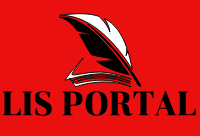Library and Information Science (LIS) is a field of study that deals with the organization, management, and dissemination of information and knowledge in various formats, including books, journals, electronic resources, and multimedia. It is an interdisciplinary field that draws from various disciplines, such as information science, computer science, management, and social sciences.
The education of Library and Information Science typically involves academic programs at the undergraduate, postgraduate, and doctoral levels. Here are the key aspects covered in the education of Library and Information Science:
1. Bachelor’s Degree (B.Lib.Sc. or B.L.I.Sc.)
At the undergraduate level, students can pursue a Bachelor’s degree in Library and Information Science (B.Lib.Sc. or B.L.I.Sc.). This program generally spans three years and covers fundamental topics such as:
– Introduction to Library and Information Science
– Cataloging and Classification
– Reference Services
– Library Management
– Information Retrieval
– Collection Development
– Information Technology and Library Automation
2. Master’s Degree (M.Lib.Sc. or M.L.I.Sc.)
The postgraduate program in Library and Information Science is known as Master of Library and Information Science (M.Lib.Sc. or M.L.I.Sc.). It is typically a two-year program that delves deeper into the field and offers advanced courses, research opportunities, and practical training. Some of the advanced subjects covered at this level include:
– Information Organization and Access
– Digital Libraries and Information Architecture
– Research Methods in Library Science
– Knowledge Management
– Preservation and Conservation of Library Materials
– Information Ethics and Copyright
– Information Literacy
3. Doctoral Degree (Ph.D. in Library and Information Science)
For those aspiring to conduct advanced research and contribute to the development of the field, there are doctoral programs (Ph.D.) in Library and Information Science. Ph.D. candidates engage in independent research, contribute to academic literature, and advance the knowledge and understanding of information science.
The education in Library and Information Science equips professionals with the necessary skills and knowledge to work in various settings, such as libraries, information centers, archives, museums, and other knowledge management institutions. Graduates can pursue careers as librarians, information specialists, knowledge managers, digital archivists, and researchers in both public and private sectors.
For more information about LIS education and career opportunities, you can visit the websites of reputable universities and institutions offering LIS programs, as well as professional organizations (www.lisportal.in) related to library and information science.
